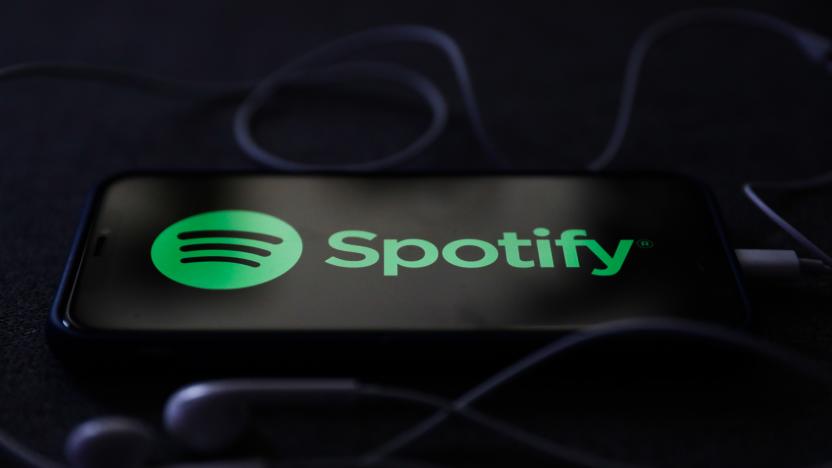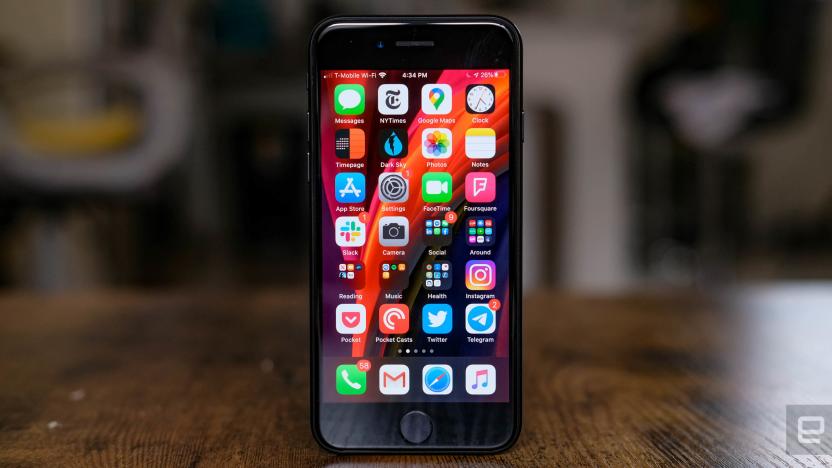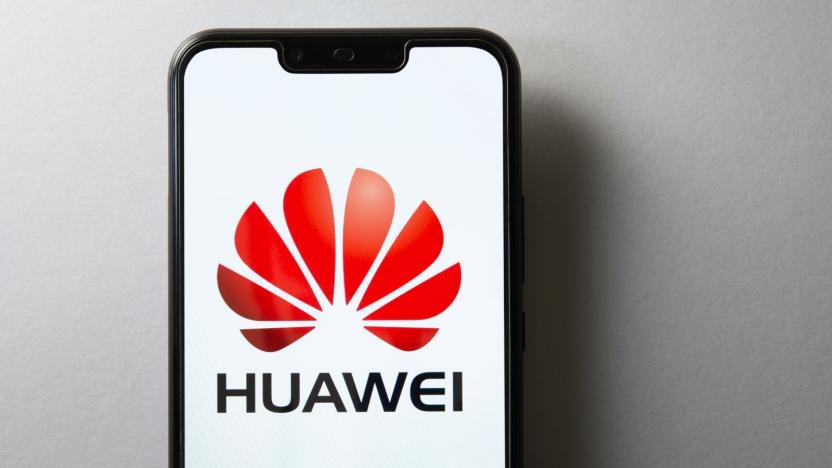growth
Latest

Meta says its VR platform has grown by ten times since December
Facebook rebranded itself as Meta in order to fully embrace virtual reality via the Oculus platform, so how is that actually going?

Spotify now has 158 million Premium subscribers
It's slower growth after an explosive 2020, but one that Spotify was expecting.

Spotify is adding users faster than it thought it would
After a short COVID-19 related slump in Q1 2020 and a rebound in Q2, Spotify saw big growth in subscriber numbers for its latest earnings period.

Apple gears up for direct iPhone sales in India
The online Apple Store comes to India next month, and a real-world one is due to arrive in 2021.

Netflix releases worldwide subscriber stats by region for the first time
For the first time, Netflix is reporting its international business operating results by region. In a filing with the Securities and Exchange Commission (SEC), Netflix shared its streaming revenue and membership info for the US and Canada; Europe, Middle East and Africa; Asia-Pacific and Latin America. This change in how Netflix reports its earnings data highlights how important markets outside the US have become -- especially as Netflix faces new competition.

Huawei boosts smartphone sales in China by a whopping 66 percent
In spite of US sanctions, Huawei is doing just fine in China. The company's domestic smartphone shipments increased 66 percent year-over-year, according to a report by market research firm Canalys. In the last quarter, Huawei shipped 41.5 million devices in China, giving it a record-high market share of 42 percent. At least some of that success, might be attributed to customers purchasing Huawei devices as a rebellion against US sanctions and foreign pressure.

Huawei reports increased sales despite US sanctions
Huawei's latest quarterly results show that the Chinese company is doing just fine, despite ongoing trade issues with America. Third-quarter revenue is up 24.4 percent on the same period last year, while the company says it has shipped more than 185 million smartphones in the first three quarters of 2019, up 26 percent year-on-year.

The wearable market is (still) booming
Sticking to its upward trajectory, the wearable market saw staggering growth through the end of 2018. That's not entirely a surprise. While the wearable business is tough, the market as a whole has been steadily increasing. But the rate at which the market has expanded more recently is impressive.

Over a million Americans quit Twitter in just three months
Controversial presidential announcements and celebrity revenge porn are all in a day's work for the social network everyone loves to hate. Now, Twitter has announced its most recent financial results and things aren't looking good for the microblog beloved by the leader of the free world.

Analysts predict the end of the smartphone boom
Gartner's latest research into the state of the mobile industry is a dire warning to all phone manufacturers. The financial analysis firm believes that the growth in smartphone sales will fall to a single digit, half the rate it was in 2015. It's hard to think that people buying 1.5 billion devices in a calendar year is a bad thing, but for companies who make profit on scale, it's a nightmare. Last year, LG made just 1.2 cents in profit for every phone it sold, and you need to sell a lot of phones at that cost before you can consider yourself a big deal.

Google gives the world a peek at its secret servers
Google has given everyone a rare look inside its server rooms and detailed how keeps up with the massive growth of its search business. In a blog post, Google Fellow Amin Vadat said that the company's current network, Jupiter, can deliver a petabit per second of total throughput. That means each of its 100,000 total servers can randomly speak to each other at a speed of 10Gb/s, a hundred times faster than the first-generation network it created in 2005. To get there, Google did something surprising -- it built its own hardware from off-the-shelf parts.

T-Mobile worried lopsided FCC auctions will end its winning streak
T-Mobile kicked off 2014 by crashing an AT&T party, and finished it with "our best year in company growth ever," according to CEO John Legere. To be exact, it added 8.3 million new customers over the year, including a million "postpaid," clients in the last quarter of 2014. The Uncarrier chalked that success up to its tweaked Simple Choice plans, saying that 89 percent of all postpaid customers are now on them. It also added 1.2 million prepaid clients over the year, all of which resulted in 19 percent more revenue and a net profit of $5.6 billion in 2014. For the sake of comparison, AT&T said it picked up 5.6 million customers in 2014, but then again it has 120 million wireless customers compared to 55 million for T-Mobile.

The Daily Grind: What MMOs have surprised you with their growth?
The picture above is of my kitten. Yes, kitten; he's only nine months old, despite being enormous. I have pictures of him on Twitter of back when he was so tiny I could hold him in one hand. And he's still my dear little kitty, he still loves cuddling up to me when I hold him and flopping in front of me on his back like a baby... but it amazes me how much he's grown over the months. Kittens are not the only things that grow, though. Even though there have been some notable missteps, I'm dazzled by how much Final Fantasy XIV has grown over the past few months, and while I'm not playing Star Wars: The Old Republic at the moment, I'm similarly fascinated by how many ways that's expanded. What about you? What MMOs have surprised you with their growth, adding on strange or unexpected elements or just becoming bigger in ways you wouldn't have expected at launch? Every morning, the Massively bloggers probe the minds of their readers with deep, thought-provoking questions about that most serious of topics: massively online gaming. We crave your opinions, so grab your caffeinated beverage of choice and chime in on today's Daily Grind!

Browser game market in China 'booming'
If you love to hate on browser-based MMOs and feel as though their time has passed, China might like to have a word or two with you. Sales of browser-based titles in the country have risen substantially in the past two years, increasing 46% in 2011 and 35% in 2012 according to a Taiwanese games company president, whereas client-based MMOs only made a 13% increase in growth in 2012. XPEC's Aaron Hsu said that the figures showed that browser games are far from finished in the region: "I'm not sure about the rest of the world, but the browser game market in mainland China is just booming. It's just like the MMORPG market in 2003, for China. I feel like the Chinese developers have created a new business model for browser games there." Due to the success of several lucrative browser games, Chinese developers are actively pursuing the browser -- not mobile -- platform. Hsu recommended that Western developers should concentrate on finding a Chinese publisher or partner to help ease into this different market instead of trying to break in solo.

NCsoft earnings report shows healthy growth
NCsoft just released its fourth quarter 2012 earnings report, and things are looking pretty good across the board for the multi-MMO company. NCsoft's earnings are up both quarter-over-quarter and year-over-year due to the releases of Blade & Soul and Guild Wars 2, not to mention "record-breaking annual revenues" from Lineage. Guild Wars 2 accounted for 45% of the company's sales in Q4, followed by Lineage (24%) and Blade & Soul (10%). ArenaNet's newest game increased the North American market from 16% in Q3 to 25% in Q4. It's not completely sunshine and roses, however. Lineage II and Aion both experienced declines during the period. NCsoft's net income was in the red for the quarter and its stock has slid since September, losing half of its value in the process. [Thanks to Paul for the tip!]

Might & Magic Heroes 6 'Shades of Darkness' standalone coming Feb. 28
Ubisoft has announced a release date for the upcoming Might & Magic Heroes VI standalone expansion. Shades of Darkness, as it's called, will be available worldwide on February 28, 2013. Set in time one century after the core game's events, Shades of Darkness will feature two storylines, setting two factions – the Dark Elves and the Necromancers of Heresh – against each other for the fate of Ashan.The expansion will be available independently or as part of a Might & Magic Heroes VI Complete Edition, which includes the core game and the expansion along with all bonus content, two DLC packs, and a full soundtrack. And Ubisoft has also premiered the Might & Magic web portal, featuring lots of information about the franchise's mythology, an interactive timeline about the world's history, and lots of new and info on the various games in the series. You can see some portal layouts and a bit of concept art for the expansion in the gallery below. %Gallery-172876%

App Rewards Club reports on what going free can do for developers
App Rewards Club is an app and service put together by a few iOS developers to help their fellow app devs with user discovery on the App Store. Like the Free App a Day service, App Rewards Club highlights free apps every day, which benefits users because they can grab apps for free, and then benefits developers because they can grab users to monetize off of. App Rewards Club also offers a monetization service, teaming developers up with other promotions that let users earn rewards in apps. The club has been keeping a tally of how it all works when various apps go free, and they've posted a very interesting report over on the official blog, talking about that very subject. What's perhaps most interesting is just how organic the App Store is: The apps that ARC saw do best with a free period spent exactly zero marketing dollars on their sale, and were instead just propelled by being featured on the App Store or mentioned in the press. As ARC says, "some apps have a natural propensity to get attention and move downloads without getting a big marketer involved." That's a fascinating result, and it's likely one that Apple will be thrilled to hear, given that the App Store was designed to be a relatively open marketplace, where individual developers can compete up alongside much larger companies like EA and Activision. This study finds that a marketing budget doesn't matter so much as just how "sticky" the actual app is. Elsewhere, the company also found that switching from paid to free, while having an (obvious) negative immediate effect on revenue, will actually raise the average number of purchases after going back to paid. It's not by much, and downloads go very high when flipping over to free, but developers looking for a spike in app interest can definitely consider a temporary free giveaway to do so. There's a lot of interesting information here, and the company says it still has a lot to learn going forward. But the main takeaway here seems to be that, for now, growth on the App Store is still fairly organic. Some apps can do well when they get attention, regardless of how much money they spent to get it.

iOS 6 becomes 15 percent of Apple mobile device traffic within 24 hours
There's been some trepidation among Apple device users over the upgrade to iOS 6 given that it takes away some components while adding others. You wouldn't guess it from the initial upgrade rate, however. Both ChartBoost and Chitika have determined that about 15 percent of iOS data traffic was already coming from Apple's latest release within its first 24 hours of availability -- not bad, considering that it took Android 4.0 roughly eight months to reach a similar ratio and iOS 5 about five days to hit 20 percent. ChartBoost adds that iPhone owners were the quickest to upgrade, which is only logical when the iPhone 4S gets the most new features. The contrast between Android and iOS was entirely expected, knowing Apple's limited hardware pool and reduced carrier oversight. We're more interested in the differences between iOS versions: they suggest that whatever advantages people see in iOS 6, as well as a widespread over-the-air update system, have been enough to spur on many early adopters.

iOS and Android make for fastest tech adoption ever
Mobile marketing and analytics firm Flurry has another great research post up, this time about the speed of adoption for both iOS and Android. This one goes a little far into comparing apples and oranges, so to speak, but it's still interesting. Flurry notes that both iOS and Android app usages has blown up in the last few years, so much so that it's seeing traffic increases of over a few hundred percent from the past year in places like China, Brazil, and Chile. Flurry now estimates that there are over 640 million iOS and Android devices running apps worldwide, and given the huge growth of that number, as well as the big numbers behind app and data usage on those devices, these smartphones are being adopted by users "10X faster than that of the 80s PC revolution, 2X faster than that of 90s Internet Boom and 3X faster than that of recent social network adoption." Unfortunately, Flurry doesn't share the exact numbers behind those stats (not to mention that it's hard to compare numbers like that anyway, given how tough it is to calculate in numbers what a "revolution" in the tech sense actually means). But the point is clear: The current smartphone growth is a huge movement in the tech industry, and is taking place on a much faster and larger scale than ever before.

Report: Global MMO spending to top $12 billion in 2012
Number-crunching services SuperData Research and Newzoo released reports today forecasting strong growth in the MMO industry. According to the analysts, worldwide spending on MMOs will top $12 billion this year, and that's not all: The companies also predict that this number will increase to a whopping $17.5 billion in 2015. Other facts released in the reports: Yearly MMO market growth increased by 14% in the U.S. and 24% in Germany. The number of MMOs in the field has doubled since the start of 2011. Twenty-three of the 50 million U.S. MMO gamers spend money on subscriptions or microtransactions, a 3% increase from 2011. The yearly average amount spent is $127. More German players spend money on MMOs than in the U.S. -- 13% more, to be exact. Free-to-play revenues in the U.S. now account for 50% of the market, up from 39% in 2010. Science-fiction MMOs make up to three times as much money as their fantasy counterparts. SuperData CEO Joost van Dreunen says that the race for gamers' wallets is only getting started: "The current market saturation forces MMO publishers to compete over a finite gamer population." [Source: SuperData Research/Newzoo press release]







